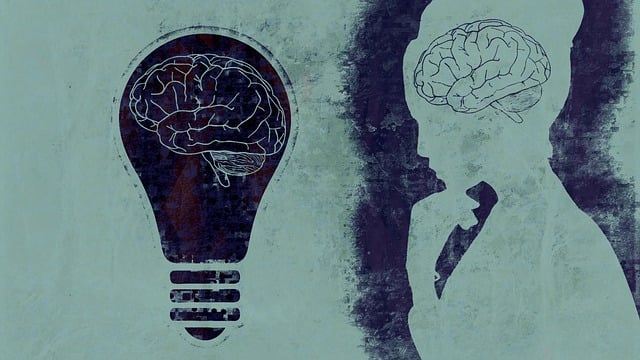Lone Tree Christian Counseling Therapy leads Mental Health Advocacy efforts, focusing on raising awareness, challenging stigma, and offering specialized therapy programs for anxiety relief, burnout prevention, and more. Through workshops, self-awareness exercises, crisis intervention guidance, and confidence-building activities, they empower individuals to proactively manage their mental well-being. Their campaigns, like the Mental Wellness Podcast Series, have inspired transformation in clients by fostering open conversations about emotional intelligence and mental health, ultimately enhancing community mental wellness.
Mental health advocacy plays a vital role in fostering supportive communities. This article explores the impact and strategies behind successful initiatives, with a focus on Lone Tree Christian Counseling Therapy as a shining example. We delve into understanding mental health advocacy’s necessary mission, the crucial role of counseling centers in community support, and effective awareness campaign tactics. Additionally, inspiring stories highlight the profound effects of advocacy, offering valuable insights for those seeking to make a positive change.
- Understanding Mental Health Advocacy: A Necessary Mission
- The Role of Counseling Centers in Community Support
- Strategies for Effective Mental Health Awareness Campaigns
- Inspiring Stories: Impact of Advocacy Initiatives at Lone Tree Christian Counseling Therapy
Understanding Mental Health Advocacy: A Necessary Mission

Mental Health Advocacy is a crucial mission that aims to raise awareness, challenge stigma, and promote understanding of mental health issues. It involves numerous initiatives focused on educating communities, providing support networks, and ensuring access to quality counseling services. Organizations like Lone Tree Christian Counseling Therapy play a pivotal role in this advocacy by offering specialized therapy programs tailored to diverse needs, including anxiety relief and burnout prevention.
These efforts are essential for fostering an environment where individuals can openly discuss their mental health struggles without fear of judgment. Through various campaigns, workshops, and counseling sessions, advocacy groups work towards developing comprehensive Mental Wellness Coaching Programs that empower people to take charge of their well-being. By addressing mental health proactively, these initiatives contribute to a healthier, more supportive society.
The Role of Counseling Centers in Community Support

Counseling centers play a pivotal role in fostering community mental health and well-being. Organizations like Lone Tree Christian Counseling Therapy exemplify this commitment through their diverse range of services, which extend far beyond traditional therapy sessions. These centers often offer workshops and programs aimed at promoting self-awareness exercises, crisis intervention guidance, and confidence boosting activities. By integrating these initiatives into the community, counseling centers create a supportive ecosystem that encourages open conversations about mental health challenges and provides practical tools for coping.
The impact of such efforts is profound; they not only equip individuals with effective strategies to navigate stress and adversity but also foster resilience. This proactive approach breaks down barriers associated with seeking mental health support and ensures that community members have access to resources tailored to their unique needs. Ultimately, counseling centers serve as catalysts for positive change, enabling individuals to lead happier, more fulfilling lives.
Strategies for Effective Mental Health Awareness Campaigns

Mental health awareness campaigns are a powerful tool to educate and destigmatize mental illness. At Lone Tree Christian Counseling Therapy, we believe in employing strategic approaches to ensure these campaigns make a lasting impact. One key strategy is personalization; tailoring messages to diverse audiences enhances understanding and resonance. This can be achieved through targeted content that addresses specific mental health concerns prevalent in different communities, ensuring everyone feels represented.
Engaging and interactive formats, such as workshops, webinars, and social media challenges, promote active participation. Encouraging self-awareness exercises and mood management techniques through these platforms empowers individuals to take charge of their mental wellness. Additionally, involving influential figures and sharing personal stories can humanize the issue, fostering empathy and encouraging support for better mental health services.
Inspiring Stories: Impact of Advocacy Initiatives at Lone Tree Christian Counseling Therapy

At Lone Tree Christian Counseling Therapy, inspiring stories of transformation are a testament to the power of advocacy initiatives. Many clients have shared how their journeys towards mental wellness were significantly enhanced by the support and resources provided through counseling services. These stories highlight the impact of fostering open conversations about emotional intelligence and mental health within their community.
Through their Mental Wellness Podcast Series Production, Lone Tree Christian Counseling Therapy has reached a broader audience, offering valuable insights and practical tips for navigating life’s challenges. This initiative not only educates but also empowers individuals to take proactive steps towards better mental wellness. The counseling therapy center’s commitment to advocacy has created a supportive environment where clients feel heard, understood, and encouraged to embrace their mental health journeys with hope and resilience.
Mental health advocacy initiatives, as exemplified by the successful efforts of Lone Tree Christian Counseling Therapy, play a pivotal role in fostering community support and improving mental well-being. By combining counseling services with targeted awareness campaigns, these initiatives not only provide direct assistance but also cultivate a culture of understanding and empathy. Moving forward, integrating these strategies into broader community outreach programs can lead to more inclusive and effective mental health support systems, ultimately enhancing the quality of life for all individuals.










